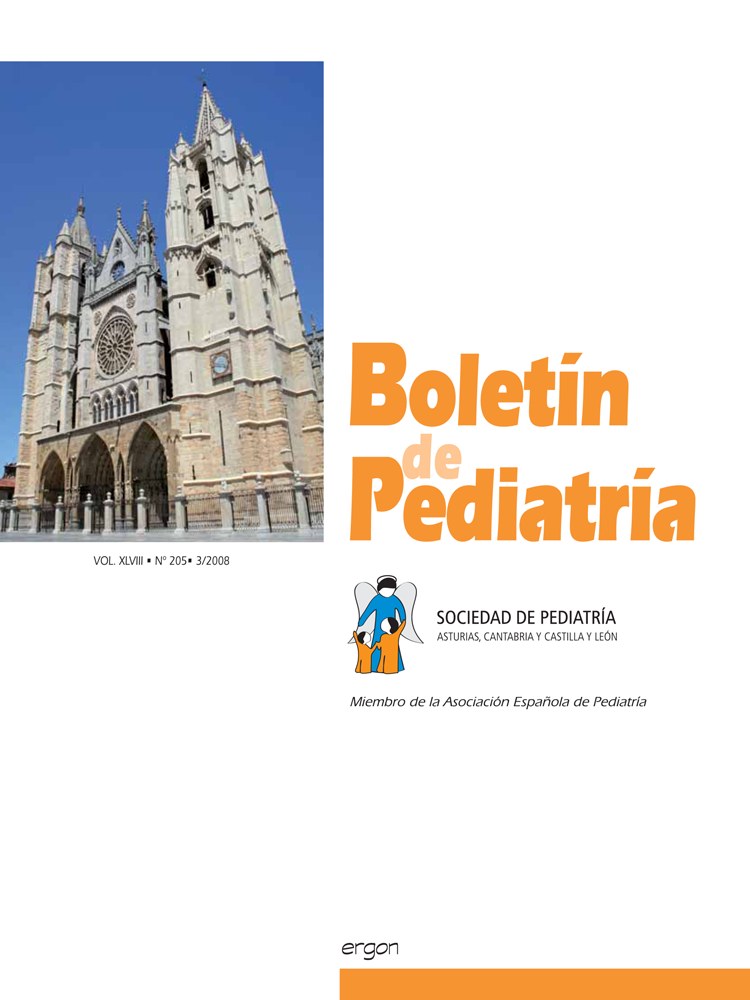Abstract
Background and Objectives: To determine the perinatal characteristics of the newborn son of immigrant mothers in the Complejo Asistencial de Leon.
Methods: We collected data from infants born in our hospital, children of immigrants, over a period of four months. The sample consists of a total of 521 infants, 60 of whom are children of immigrant mothers (11.5%). The data analyzed are: Sex, nationality, maternal age, parity, control, age and incidences of gestation, amniorrhexis time, type of delivery, risk of infection, anthropometric characteristics, incidence and duration of admission.
Results: In our sample of immigrants dominates female (34/60 vs 222/461, p: 0.27), a greater number of miscarriages of ? 36 weeks (6/60 vs. 15/461, p: 0011, OR: 3.38,-95% CI: 2.39-4.37), younger mothers immigrants (25.9 ± 5.1 vs 31.6 ± 5.3, p <0001) and fewer primiparous (31/60 vs 273/461). No controlled pregnancy predominates in inmigrants (6/60 vs 1/461, p <0.000), longer time of amniorrhexis (8.0 ± 9.8 vs. 5.4 ± 7.2, p : 0.055) and risk of vertical infection (37/60 vs 164/461, p:0.000, OR: 2.83, IC-95%: 2.27-3.39). The immigrants have less hypothyroidism and gestational diabetes, and more urinary infections and threats of abortion, with no significant results. In immigrants are more frequent eutocic deliveries (38/60 vs 262/461). The newborn children of immigrant mothers have anthropometric characteristics similar to the children of Spanish mother and suffer the same incidents during his admission to the neonatal unit.
Conclusions: - 11.5% of our newborn is son of immigrant mother. - The foreign mothers are younger, with more children and a less controlled gestation than national ones. - There is a greater number of premature births and a higher risk of infection by vertical transmission.

This work is licensed under a Creative Commons Attribution-NonCommercial 4.0 International License.
Copyright (c) 2008 Boletín de Pediatría
